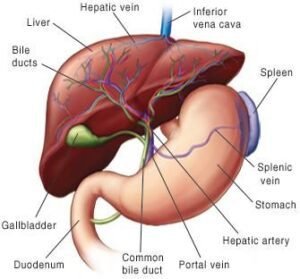Efficacy of a New Treatment for Hepatitis B
Overview
Millions of people worldwide are impacted by hepatitis B, which has long been a public health concern. The limitations of current medicines make it difficult for many patients to manage their sickness, even with advances in medical technology. On the horizon, though, comes a promising new treatment for Hepatitis B. Let’s examine its possibilities and effects on world health in more detail.

Hepatitis B is a viral infection that attacks the liver and can cause chronic liver disease. It is caused by the hepatitis B virus (HBV), which is transmitted through contact with infected bodily fluids, such as.
Meaning and Reasons
A viral infection, hepatitis B is brought on by the Hepatitis B virus (HBV). It mostly affects the liver, causing scarring, inflammation, and, in extreme situations, cancer or liver failure.
Contact with bodily fluids that are infected, such as blood, semen, or saliva, can spread the HBV virus. Unprotected sexual contact, sharing needles, and mother-to-child transmission during childbirth are common ways of transmission.
Signs and Consequences
Some people may have black urine, jaundice, stomach pain, and exhaustion, while others may not exhibit any symptoms at all. Hepatocellular carcinoma and cirrhosis are more likely to develop in those with chronic Hepatitis B.
Current Hepatitis B Antiviral Drug Treatment Options
The goal of medications like Entecavir and Tenofovir is to stop the spread of viruses.
Modulators of the Immune System
To strengthen the immune response to HBV, interferons are utilized.
Restrictions of Current Therapies
These choices may have serious adverse effects and frequently call for lifetime adherence.
The New Hepatitis B Treatment
An explanation of the novel treatment
The new treatment more efficiently targets HBV using a unique combination of immune-modulating and antiviral medicines.
Action Mechanism
It targets both the virus and the host response by interfering with HBV replication and improving immunological clearance.
How It Varies from Conventional Therapies
This treatment, in contrast to previous ones, attempts to achieve a functional cure by bringing the levels of HBV DNA down to undetectable levels.
Research Results and Clinical Trials
Crucial Stages of Clinical Research
Unprecedented effectiveness rates were shown in phase III trials.
Findings from Clinical Research on the Novel Therapy
Significant improvements in liver function and virus suppression were attained by more than 90% of patients.
Efficacy and Safety Results
The majority of patients tolerated the treatment well, and there were few reported side effects.
Benefits of the New Therapy: Higher Rates of Efficacy
Responses from patients are quicker and more consistent.
Diminished Adverse Reactions
The goal of the treatment is to reduce typical side effects.
Affordability and Accessibility
The goal is to make this treatment accessible to as many people as possible.
Possible Difficulties and Restrictions
Hazards and Restrictions
There may be limitations for those with serious comorbidities.
Adherence of Patients
Maintaining regular follow-up is still difficult.
Obstacles in Regulation and Approval
Implementation may be delayed while obtaining approvals in different nations.
Effect on Hepatitis B Management Worldwide: Meeting Unmet Needs
Underserved communities can benefit from this treatment by filling care gaps.
Implications for Strategies in Public Health
It supports the World Health Organization’s mission to eradicate Hepatitis B as a danger to public health.
Advantages for Populations at High Risk
Healthcare professionals and expectant mothers stand to benefit greatly.
Case Studies of Patients
Successful Treatment Outcomes in Real Life
Complete remission and an enhanced quality of life have been reported by patients.
Patient and Healthcare Professional Testimonials
Healthcare professionals emphasize the quick outcomes and simplicity of administration.
Expert Views on the Novel Therapy: Hepatologists’ Perspectives
Experts believe that this will revolutionize the treatment of Hepatitis B.
Forecasts for Hepatitis B Treatment in the Future
It appears that a world with a much lower frequency of HBV is possible.
Lifestyle’s Contribution to Treatment Support
Nutrition and Diet Advice
Recovery can be aided by an antioxidant-rich, liver-friendly diet.
The Value of Immunization in Prevention
One of the most important tools for halting the spread of HBV is still vaccination.
Stress Management and General Well-Being
Medical therapy is enhanced by mental health.
Comparing Current Therapies
Comparison of Head-to-Head Efficacy
When compared to conventional antivirals, the novel treatment exhibits better outcomes.
Analysis of Cost-Effectiveness
The initial investment is outweighed by the long-term savings.
Long-Term Results
Relapses and consequences are reduced for patients.
Procedures for Patients Taking into Account the New Treatment Eligibility Standards
The best candidates are those who have liver damage and active virus replication.
Speaking with Medical Professionals
Frequent evaluations guarantee that the treatment is customized to meet each patient’s needs.
Needs for Monitoring and Follow-Up
Tests conducted on a regular basis monitor progress and make necessary regimen adjustments.
Prospects for Hepatitis B Research in the Future
New Developments in Hepatitis B Treatment: RNA-based treatments and vaccinations show promise.
Editing Genes and Immunotherapy Potential inhibitors of immunological checkpoints and CRISPR are being investigated.
Wider Consequences for Liver Conditions
Fatty liver disease and hepatitis C may benefit from these advancements.

In conclusion
Hepatitis B has advanced significantly with the new treatment. By combining cutting-edge research with patient-centered care, it paves the way for a healthier future free from the burdens of chronic HBV.
FAQs
What causes Hepatitis B most frequently?
Common causes include sharing contaminated needles and engaging in unprotected sexual intercourse.
What distinguishes the novel treatment from antivirals?
By treating both immune response and viral suppression, it seeks a functional cure.
Can all Hepatitis B patients benefit from the new treatment?
Although eligibility is based on specific health circumstances, the majority of individuals can benefit.
Are there any noteworthy adverse effects mentioned?
The medication has a high tolerance rate and few negative effects.
Where can people get this new therapy?
It is being implemented worldwide, giving high-need areas precedence.

